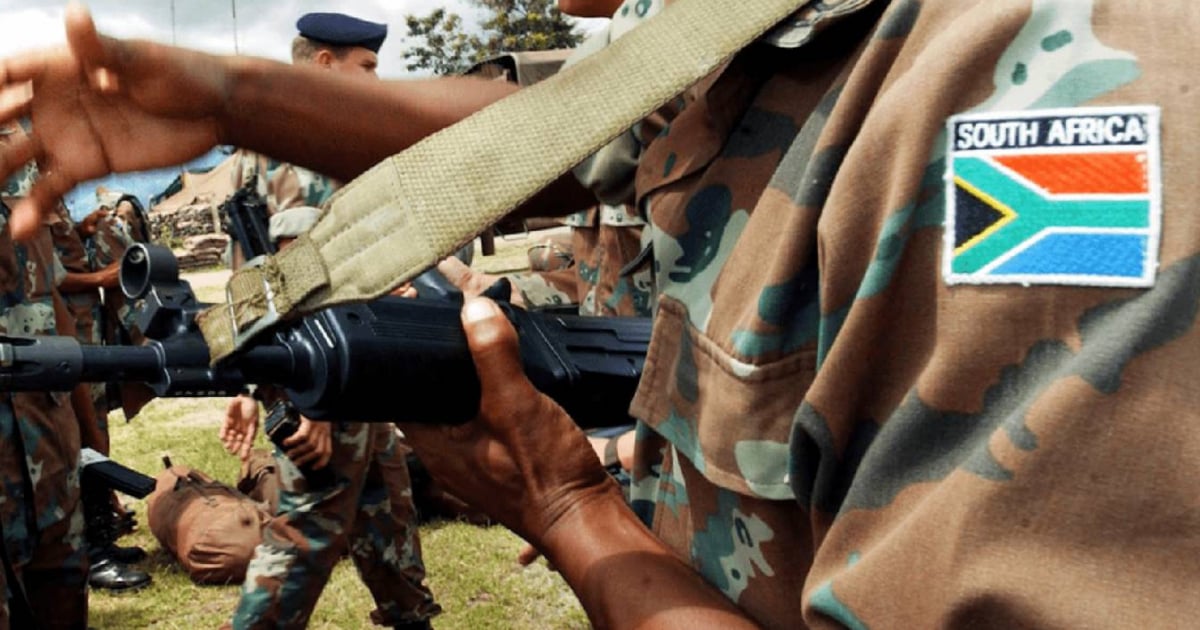The South African Air Force (SAAF) has terminated a longstanding agreement with Cuba's Revolutionary Armed Forces (FAR), which had allowed South African cadets to receive training on the island since 2014. General Rudzani Maphwanya, head of the South African National Defence Force (SANDF), elaborated that the decision to discontinue this program stems from "incompatibilities with local standards," as reported by Military Africa.
Despite the high quality of training in Cuba, Maphwanya noted that difficulties in adapting to South African standards upon returning made the continuation of the agreement unsustainable. The training program faced significant criticism, particularly because the cadets struggled to integrate with the SAAF's operational standards and procedures after their return.
Challenges and Criticisms of the Training Program
The cadets were primarily trained on Russian aircraft and followed a flight doctrine that did not align with the SAAF's Western flight protocols, leading to challenges in transitioning back to South African service. The last batch of cadets who completed their training in Cuba will now have to start their training over in South Africa.
This situation has caused dissatisfaction among military personnel who were promised promotions and operational deployments upon completing their training in Cuba. However, cadets who logged up to 65 flight hours in Cuba were unable to gain certification to operate under SAAF's local standards, leaving many of them in administrative roles as they await retraining.
Logistical and Financial Hurdles
The program was also plagued by logistical and financial issues. In 2021, only 15 cadets were selected to travel to Cuba, and of those, nine were sent back after failing initial tests. The cadets spent six months learning Spanish in Cuba before beginning their technical training on Mi-17 helicopters, but upon their return to South Africa, they were deemed unfit to fly according to SAAF standards.
SAAF officials pointed out that the focus on Russian-made aircraft and Cuban flight doctrines rendered the training ineffective for meeting the operational needs of the South African Air Force. One official mentioned that it could take cadets up to a decade to qualify as junior pilots under local standards, underscoring the program's cost and challenges. "The Air Force will not benefit from this experience in Cuba," the official stated.
Broader Context and Political Implications
The agreement's cancellation occurs amid growing tension in South Africa over its cooperation with the Cuban regime. Recently, the Gauteng High Court in Pretoria nullified a 50 million rand (approximately 2.65 million dollars) donation that the South African government had intended to send to Cuba. This donation drew criticism from the organization AfriForum, which filed a legal challenge arguing that South Africa, struggling with its own economic crisis, could not afford such expenditure.
The court's decision was welcomed by some groups, such as the DA party, which has called for the funds earmarked for Cuba to be redirected towards pressing domestic issues like healthcare, education, and employment. According to AfriForum, South Africa cannot continue to finance overseas projects while facing a severe financial crisis.
The termination of this aerial training agreement with Cuba deals a blow to the cooperative relationship between the two nations, which has been extensive in recent years. Although the South African government has defended its support for Cuba in the context of humanitarian and development projects, the country's economic situation has complicated such agreements.
Implications of South Africa's Decision to End Training Agreement with Cuba
Why did South Africa end its training agreement with Cuba?
South Africa ended the agreement due to incompatibilities with local standards and challenges faced by cadets in adapting to SAAF's operational procedures after training in Cuba.
What were the main criticisms of the training program in Cuba?
The program faced criticism for training cadets on Russian aircraft and flight doctrines that did not align with SAAF's Western protocols, making it difficult for cadets to integrate upon returning to South Africa.
What impact did the cancellation have on South Africa's relationship with Cuba?
The cancellation of the agreement is a setback to the cooperative relationship between South Africa and Cuba, which has been extensive in recent years, particularly in humanitarian and development projects.
